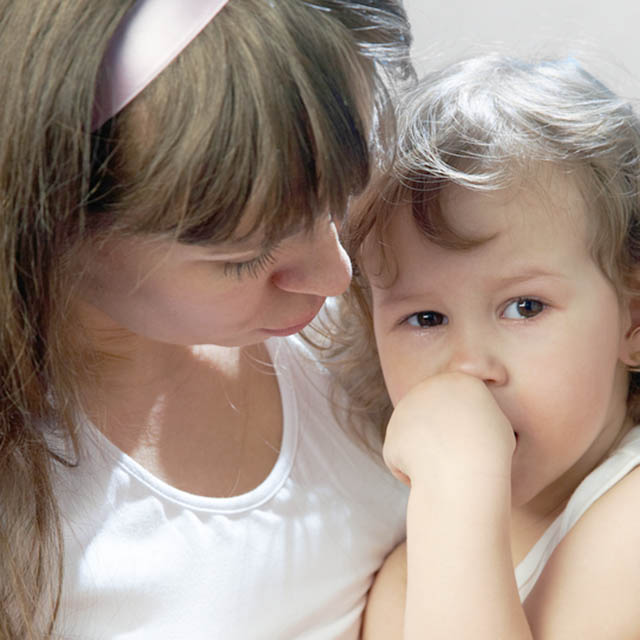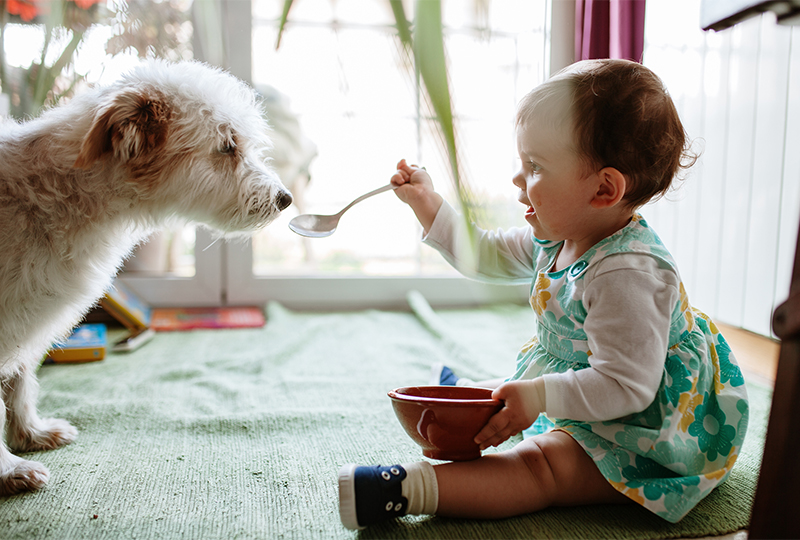Beyond moving past the yuck factor, here’s what to do if your child eats dog poop.
“My child just ate our dog’s poop!”
Young children’s natural curiosity causes them to touch and to feel things, and very often to put those objects in their mouths. We love that our children are curious and have a sense of adventure, but cringe when they push the limits of what is sanitary or safe. It can be a germ-phobic mother’s worst nightmare when her precious child puts the dog’s stool in her mouth.
All polite conversation aside, we need to know if a child who ingests stool could come to any harm. Dr. Stephanie Eidson is here to reassure us and offer these quick tips for panicked parents.
Feces, poop, doo-doo, scat, #2, caca, BM, stool.
We have many names for that which we hope that our toddlers never think of investigating too closely. We love our children and many of us are pet lovers, too. Should we worry that our children will get sick from ingesting Fido or Fluffy’s — or heaven forbid, their own — #2?
“Eating poop earns a ‘yuck factor’ of 10 for all of us, pediatricians included,” said Dr. Stephanie Eidson, a pediatrician with Monroe Carell Jr. Children’s Hospital at Vanderbilt.
All polite conversation aside, we need to know if a child who ingests stool could come to any harm. Eidson is here to reassure us and offer these quick tips for panicked parents.
A small amount is OK
As you know, poop (called excrement or droppings in scientific literature) contains large amounts of bacteria. Despite seeming an enormous bio-hazard, according to the Tennessee Poison Center, the ingestion of a small amount of stool of a healthy animal or person is considered minimally toxic. “They state that the ingestion of a mouthful of poop is not toxic and that the great majority of children have no illness afterwards,” Eidson said, “maybe just bad breath, yucky teeth and an exasperated parent.”
So if children eat excrement, be it canine, feline or human:
1. Clean them up.
Wash their hands and faces well with a washcloth, mild soap and warm water, being careful to make sure that their fingernails are clean. Wipe their teeth with a washcloth or soft toothbrush. And for professional, confidential and free reassurance, it is always OK — 24/7 — to call the Poison Helpline at 1-800-222-1222 or text POISON to 301-597-7137 and save the Poison Helpline to your emergency contacts.
2. Give them a few sips of water to drink.
They may experience immediate nausea and vomiting from the unpleasantness of eating something so unpalatable. They may (or may not) feel “yucky” and lose their appetites for a little while or they may vomit a time or two. “It is safe to give your child a few sips of water to drink and watch them at home for symptoms,” Eidson said.
3. Watch them over the next few days for problems.
Most children will act as if their dietary indiscretion never happened, but occasionally children may develop symptoms similar to food poisoning, including nausea, vomiting, diarrhea, abdominal pain and mild fever. “Most likely these symptoms will run their course and don’t require a trip to the doctor’s office,” Eidson said. “But call your child’s pediatrician if your child experiences vomiting for more than 24 hours; has severe abdominal pain, bloody stools or diarrhea for more than 7 days; or fever.” The call can help you decide if and when your child needs to be seen by the doctor.
Bottom line: No need to worry. The majority of children are unharmed.
Bottom line: No need to worry. The majority of children are unharmed.
“Children’s bodies and their immune systems are amazingly designed to fight off the attacks from the microscopic world of microbes,” Eidson said. “And for yourself, let go of parenting guilt.” And don’t give the dog away for this!

Expert care after hours
Vanderbilt’s Children’s After-Hours Clinics offer the convenience of a walk-in clinic with care provided by a board-certified pediatrician from Monroe Carell Jr. Children’s Hospital at Vanderbilt. No appointment is necessary, but we recommend calling your pediatrician first. Learn more about services for After-Hours Clinic here.

